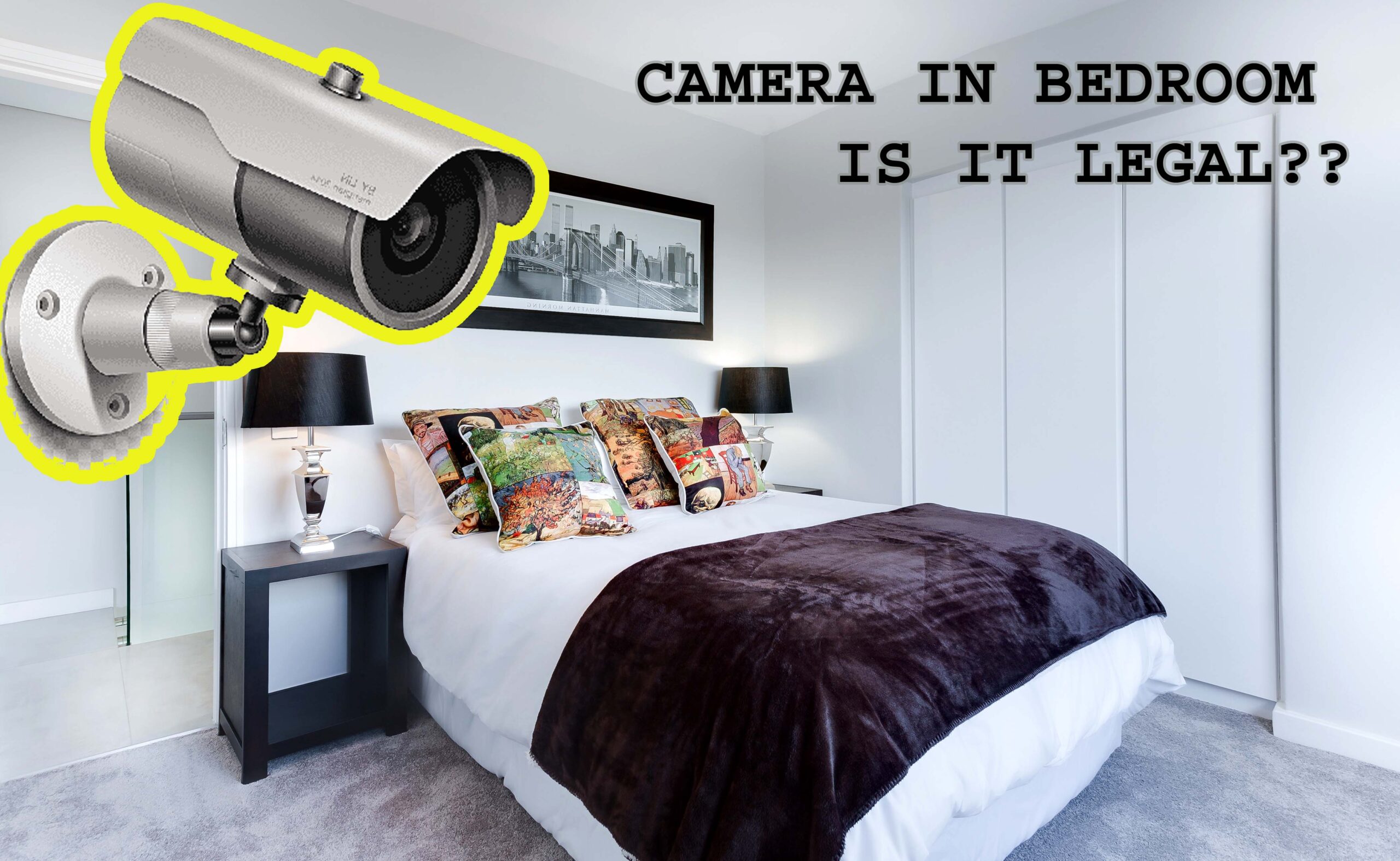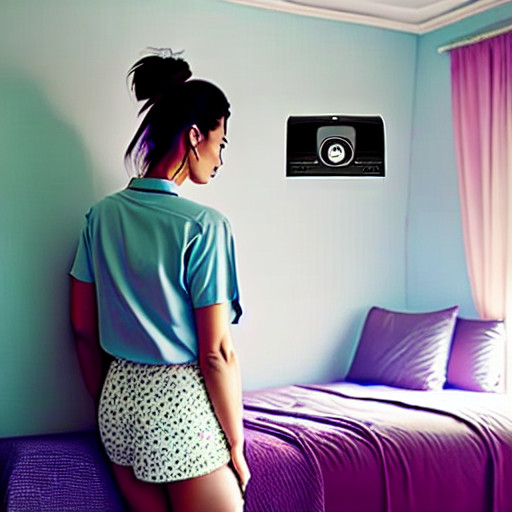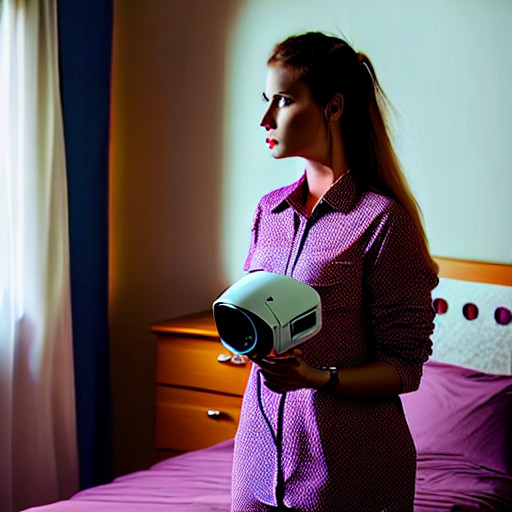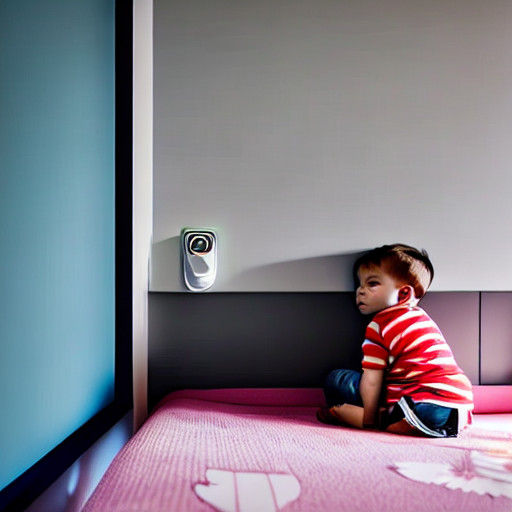The issue of whether it is legal to put cameras in bedrooms is a complex and controversial one. While there may be situations where the use of cameras in private spaces is legal and necessary, in general, the installation of cameras in bedrooms is prohibited by privacy laws.

This is because bedrooms are considered to be intimate and private spaces, where individuals have a reasonable expectation of privacy. In this article, we will explore the legal and ethical considerations surrounding the use of cameras in bedrooms, and examine the circumstances under which such use may be permitted. We will also discuss the potential consequences of violating privacy laws and the ethical implications of monitoring people’s activities in their private spaces.
The privacy of personal spaces, such as bedrooms, is a fundamental right that is protected by laws and regulations in most countries. The idea of installing cameras in bedrooms raises many concerns, and understandably so. While there may be some situations where the use of cameras in bedrooms is legal and necessary, in general, it is prohibited by privacy laws. In this article, we will explore the legal and ethical considerations surrounding the use of cameras in bedrooms, and examine the circumstances under which such use may be permitted. We will also discuss the potential consequences of violating privacy laws and the ethical implications of monitoring people’s activities in their private spaces.
Is it Legal to Put Cameras in Bedrooms
Installing a residential security camera and recording video is generally legal in the United States. However, individuals are entitled to a reasonable expectation of privacy, which also applies to video recording. As a result, recording people in areas traditionally regarded as private, such as bathrooms, is prohibited.
The idea of putting cameras in bedrooms raises many concerns, and understandably so. Bedrooms are considered to be private spaces, and most people would feel uncomfortable with the idea of being constantly monitored in such an intimate setting. Additionally, there are ethical and legal considerations to be taken into account when it comes to monitoring people’s activities, particularly in private areas like bedrooms.
In general, the answer to the question of whether it is legal to put cameras in bedrooms is no. There are several reasons why this is the case.
Firstly, it is important to understand that privacy laws vary depending on the country and jurisdiction. However, most countries have laws that protect people’s privacy, particularly in private spaces like bedrooms. These laws usually prohibit the use of cameras and other surveillance devices in such areas without the explicit consent of the people being monitored.
In some cases, it may be legal to use cameras in bedrooms, but only under very specific circumstances. For example, if a landlord suspects that a tenant is engaging in illegal activities in their bedroom, they may be able to install a camera with the permission of law enforcement. However, even in such cases, there are strict guidelines that must be followed, and the camera must be removed once the investigation is complete.
Another factor to consider is the use of hidden cameras. It is generally illegal to use hidden cameras in private spaces without consent. This is because hidden cameras can be used to capture private moments without the knowledge or consent of the people being recorded, which is a violation of their privacy.
Additionally, even if it is legal to use cameras in bedrooms, there are ethical considerations to take into account. For example, if the purpose of the cameras is to monitor a spouse or partner without their knowledge or consent, this is a violation of their trust and can lead to serious consequences.
In conclusion, while there may be some situations where it is legal to use cameras in bedrooms, these situations are rare and generally require the consent of all parties involved. In most cases, the use of cameras in private spaces like bedrooms is illegal and can be a serious violation of people’s privacy. If you are considering using cameras in this way, it is important to consult with legal professionals and make sure that you are acting within the bounds of the law.
Security Camera Laws, Rights, and Rules

The use of security cameras is not specifically regulated by federal law in terms of when, where, or how. The situation is not, however, a free-for-all. You should take into account some national regulations about consent and privacy. Also, a lot of states, counties, and localities have their own laws.
As it relates to setting up and utilising a security camera, we’ll go through your rights and the legislation you need to be aware of in this tutorial to avoid getting into trouble.
Security camera laws by state
Is it Legal to Put Cameras in Bedrooms
Local and state rules governing video surveillance are where things become complicated. Compared to what is allowed by the federal government, certain states have tougher security camera regulations. 15 states currently have specific legislation governing security cameras. You should check with your local city and county administration to see if installing that outdoor camera is permitted in states without particular restrictions.
Video surveillance laws by state
This table breaks down the 15 states with security cameras laws and notes where video surveillance is allowed and legal and under what circumstances.
| State | Public places allowed | Private places allowed | Hidden cameras allowed | Consent required |
| Alabama | ||||
|---|---|---|---|---|
| Alabama | In private places | |||
| California* | ||||
| Delaware | With consent | |||
| Florida | ||||
| Georgia† | ||||
| Hawaii | ||||
| Kansas | With consent | |||
| Maine | With consent | |||
| Michigan | With consent | With consent | ||
| Minnesota | ||||
| New Hampshire | With consent | |||
| South Dakota | With consent | |||
| Tennessee | With consent | With consent | ||
| Utah | With consent | With consent |
READ ALSO: My Husband has Cameras in House
Legal Considerations:
The use of cameras in bedrooms is generally prohibited by privacy laws. These laws vary depending on the country and jurisdiction, but they all have one thing in common – the protection of personal privacy. In most cases, the installation of cameras in private spaces such as bedrooms without the explicit consent of the people being monitored is illegal.
In some situations, the use of cameras in bedrooms may be legal, but only under very specific circumstances. For example, if a landlord suspects that a tenant is engaging in illegal activities in their bedroom, they may be able to install a camera with the permission of law enforcement. However, even in such cases, there are strict guidelines that must be followed, and the camera must be removed once the investigation is complete.

Another important consideration is the use of hidden cameras. It is generally illegal to use hidden cameras in private spaces without consent. This is because hidden cameras can be used to capture private moments without the knowledge or consent of the people being recorded, which is a violation of their privacy.
One of the main reasons why the use of cameras in bedrooms is generally prohibited is that they can be used to invade the privacy of individuals. Bedrooms are private spaces where individuals have a reasonable expectation of privacy. Installing cameras in such spaces without the consent of the people being monitored can be a serious violation of their rights.
Ethical Considerations:
In addition to the legal considerations, there are also ethical considerations to take into account when it comes to the use of cameras in bedrooms. Monitoring people’s activities in their private spaces can raise serious ethical concerns, particularly when it comes to issues of trust and consent.
For example, Is it Legal to Put Cameras in Bedrooms if a spouse or partner installs a camera in the bedroom without the knowledge or consent of their partner, this can be a serious violation of trust. It can also be a breach of the individual’s right to privacy, and can have serious consequences for the relationship.
Similarly, if a parent installs a camera in their child’s bedroom without their consent, this can be a serious violation of the child’s right to privacy. Children have a right to privacy, and installing cameras in their bedrooms without their knowledge or consent can be a serious breach of this right.
In general, the use of cameras in private spaces like bedrooms should be approached with caution, and individuals should be aware of the potential consequences of such actions. It is important to consider the ethical implications of monitoring people’s activities in their private spaces, and to ensure that any such monitoring is done with the knowledge and consent of all parties involved.
Potential Consequences:
The consequences of violating privacy laws by installing cameras in bedrooms can be serious. In addition to potential legal action, such actions can have serious consequences for personal relationships and trust.
For example, if a spouse or partner installs a camera in the bedroom without the knowledge or consent of their partner, this can lead to a breakdown in trust and a deterioration of the relationship. Similarly, if a parent installs a camera in their child’s bedroom without their consent, this can lead to a breakdown in trust and a deterioration of the relationship between the parent and child.
In addition to these personal consequences, there can also be legal consequences for violating privacy laws. Depending on
Can Parents Put Security Cameras in Children’s Room

It Highly Depends on Specific Cases
Recently, a number of OPs on forums started bumping us with questions like “Are my parents allowed to place a camera in my room? Is it prohibited to place a camera in my child’s room?” So, we make the decision to create a dedicated post to address the question of whether it is OK for parents to have CCTV cameras in their children’s rooms.
What you need to know about whether parents can install security cameras in kids’ rooms is as follows:
| Discussion | Legal/illegal |
| Legal Situation | If children are under 18 |
| Illegal Places | Bathroom/toilet/changing room |
| Effective Ways | Talk to parents, etc. |
Can My Parents Put a CCTV Camera in My Room
It is acceptable for parents to install security cameras in their own homes, including in the bedrooms and kitchens of their kids.
It would be against the law for a parent to place a covert spy camera in a young adult’s bedroom who is older than 18.
Whether or whether your parents are allowed to install a security camera in your room depends on the specific situation.
It is legal in the following cases
Parents have the legal right to install CCTV cameras in their child’s room under certain circumstances. If the child is under 18, they are considered a minor and do not have extensive privacy rights. However, cameras cannot be installed in areas such as bathrooms, toilets, and changing rooms. Therefore, if a teenager asks whether their parents can install a security camera in their bedroom, the answer is “yes.”
Parents can legally install baby monitors in their child’s bedroom, living room, kitchen, etc., to monitor infants or children under the age of four.
With the babysitter’s consent, parents can use nanny cams to ensure their children are well taken care of. However, laws dictate that audio recording is strictly regulated, and recording audio without the person’s consent is illegal.
Parents can legally install security cameras in their home, including their children’s room and kitchen, for legitimate reasons. For instance, if the child has a physical or mental disability or a severe illness such as autism or depression, parents or guardians can install a camera to ensure the child’s safety.
Therefore, if someone asks whether it is illegal for their parents to install a camera in the kitchen to spy on them, the answer is “no,” as long as the above conditions are met.
However, it is illegal for parents to install a camera in their child’s room if it violates the child’s reasonable expectation of privacy. For instance, if the child is over 18 or if the parent is using the camera for voyeuristic purposes.
In summary, parents can legally install CCTV cameras in their child’s room and other areas of the house as long as they have legitimate reasons for doing so and do not violate their child’s reasonable expectation of privacy.
Laws on Outdoor Surveillance Cameras for Home-Is it Legal to Put Cameras in Bedrooms
In most countries, homeowners are allowed to install outdoor surveillance cameras on their property. However, there are some laws and regulations that homeowners should be aware of before installing cameras.
One common regulation is that cameras should not be aimed at areas where people have a reasonable expectation of privacy, such as inside a neighbor’s home or in areas where people undress, such as a swimming pool or hot tub. Homeowners should also avoid pointing cameras at public areas, such as sidewalks or streets, as this may violate privacy laws.
In some areas, homeowners may be required to post signs indicating that they have surveillance cameras on their property. Additionally, some jurisdictions require homeowners to obtain permits before installing outdoor surveillance cameras.
Another important consideration is data privacy laws. Homeowners should take appropriate measures to protect the data collected by their cameras and ensure that it is not shared or used for unauthorized purposes. In some areas, there may be restrictions on the retention period for footage collected by surveillance cameras.
Overall, homeowners should familiarize themselves with the laws and regulations in their area before installing outdoor surveillance cameras. This can help ensure that their cameras are used responsibly and legally.
Laws against Hidden Cameras
Is it illegal to have cameras inside your house
Laws on hidden cameras vary by jurisdiction, but in general, it is illegal to record or monitor someone without their knowledge or consent in areas where they have a reasonable expectation of privacy. This includes areas such as bathrooms, bedrooms, and changing rooms.
Some jurisdictions also have laws prohibiting the use of hidden cameras in public places where people have a reasonable expectation of privacy, such as locker rooms, dressing rooms, and public restrooms.
In some cases, the use of hidden cameras may be allowed if there is a legitimate reason for doing so, such as for law enforcement purposes or to investigate suspected criminal activity. However, even in these cases, there may be restrictions on how the cameras can be used and who can view the footage.
It is important to note that the use of hidden cameras in the workplace is also subject to specific laws and regulations. In most cases, employers are required to notify employees if they are being monitored and obtain their consent, unless the monitoring is necessary for security or performance-related reasons.
In summary, the use of hidden cameras is generally illegal if it violates an individual’s reasonable expectation of privacy, but there may be exceptions for certain situations, such as for law enforcement or workplace monitoring. It is important to familiarize oneself with the specific laws and regulations in their jurisdiction before using hidden cameras.
| aws on indoor surveillance cameras for home | – | – |
| is it illegal to put cameras in someone else’s house | – | – |
| laws on outdoor surveillance cameras for home michigan | – | – |
| can you put a camera in a foster child’s room | – | – |
| business security camera laws |
FAQ
Can i put Cameras in My House without my Spouse Knowing?
As long as you follow the guidelines for one-party permission and a reasonable expectation of privacy, hidden cameras are often acceptable. In addition, 11 of the 15 states with home security camera legislation expressly permit them—albeit with restrictions.
Can you put a hidden camera in someone else’s house?
The majority of states allow you to use these covert cameras inside your house without the subject’s permission. It is often illegal to install a concealed camera in someone else’s home, as you would have guessed, even if your child is being cared for there.
Is it illegal to spy on someone with a camera?
California’s HIDDEN CAMERA LAW
In California, it might be against the law to record any private conversation on camera, even with permission.
How do I block my neighbors security camera?
Is it illegal for your parents to hide a camera in your room?
Can someone watch my camera?
Can someone stalk you through your camera?
What is the punishment for spying on someone?
What is the punishment for illegal spying?
Is it illegal to spy on someone’s house?
